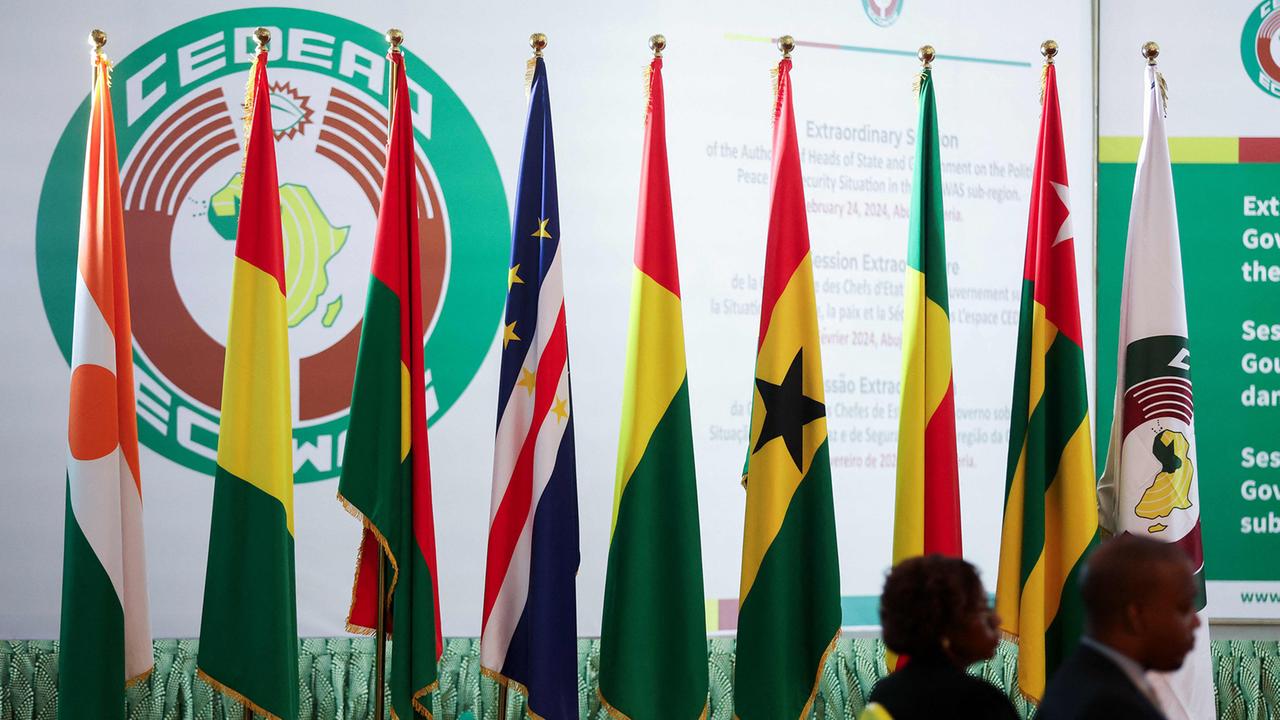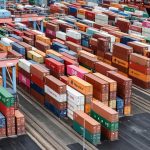background
The ECOWAS economic community wanted to use pressure and strict sanctions to force putschists in several West African states to withdraw. The project has now completely failed.
In terms of population and economy, Bola Tinubu is president of the strongest country in West Africa. Nigeria has huge reserves of raw materials, especially crude oil and gas.
Tinubu wants to play a larger role on the international stage and establish his country as a regional power. Tinubu had an opportunity to meet this requirement at the end of May 2023.
Nigeria's President Bola Tinubu at an ECOWAS meeting
“Don't sit there like a toothless bulldog”
Shortly after his election as president, Tinubu took over the chairmanship of the Economic Community of West African States (ECOWAS). Among other things, the association aims to promote the free movement of people and goods. But, as the Federal Ministry for Economic Cooperation and Development writes, ECOWAS is increasingly taking on “an active role as a peace and security actor”.
In his inaugural speech as chairman, Tinubu emphasized the latter in particular in a tone that some described as aggressive: “We have to bite back. We can't sit there like a toothless bulldog,” he said at the time.
Coup in Niger – a litmus test
After coups in Guinea, Mali and Burkina Faso, Tinubu no longer wanted to tolerate a coup in his neighborhood. But just two months after this speech, the military in Niger detained the elected President Mohamed Bazoum in his residence, and the head of the presidential guard Abdourahamane Tiani declared himself temporary head of state. It was the litmus test for Tinubu. Would the harsh words be followed by actions?
ECOWAS imposed sanctions and Nigeria even stopped electricity supplies to its neighboring country. Economic sanctions had already been imposed on Guinea, Mali and Burkina Faso, whose memberships were also suspended. But the economic community even threatened violence against Niger.
The bulldog, to stay with Tinubu's image, showed its teeth. But she didn't bite. No troops were sent, only renewed appeals to release Bazoum and reinstate him as president. A request that became less and less likely to be implemented day by day. Today it is unimaginable
Sanctions set Nigeria back
However, the person who suffered the most from the sanctions was not the military regime in Niamey, but Nigeria. This is what political scientist Hussaini Tukur, professor at Nasarawa State University in Keffi, says.
The inflation rate in Nigeria was 29.6 percent in January. Price increases that brought many people to the brink of desperation and onto the streets. Prices, especially for fuel, have already risen dramatically in recent years.
Most of West Africa's food, medicine and manufactured goods are produced in Nigeria. But trade was affected by the sanctions.
Re-entry of Burkina Faso, Mali and Niger?
In addition, at the end of January the military juntas in Burkina Faso, Mali and Niger declared their immediate withdrawal from the economic community. The countries have thus escaped the control of ECOWAS, describes the political scientist Tukur. The only way to “coax” them and perhaps persuade them to rejoin is to lift the sanctions.
And that is exactly what ECOWAS did over the weekend. On Saturday it declared that land and air borders with Niger would be reopened with immediate effect. Trade and financial transactions between countries are possible again. Only personal and political sanctions, it was said, still apply.
On Sunday, the economic community also withdrew sanctions that it had imposed on Guinea and Mali. Nigeria's President Tinubu sounded much tamer than last year. In these times, “difficult but courageous decisions” must be made, he said at the summit in Abuja.
Turning to Russia and China
It is a real political decision. The regimes in the Sahel region have been orienting themselves more and more eastwards, towards Russia and China, for some time now. Not only the neighboring countries are feeling this, but above all the former colonial power France.
Most recently, Senegal's President Macky Sall plunged his country and the region into another political crisis when he wanted to postpone the election of his successor from February 25th to December 15th. The Constitutional Council there declared this unconstitutional. Paris is also following developments closely here.
Senegal has so far been a close ally of the West and France. However, Pastef, the party of imprisoned opposition leader Ousmane Sonko, which is particularly popular among young people, is campaigning against foreign influence.
Combating terrorism is one of the biggest challenges
Crisis follows crisis, especially for ECOWAS. And cooperation with the Sahel states is also essential for another important problem, says Nigerian economist Aliyu Yusha'u: the fight against terrorism. Nigeria in particular is plagued by jihadist terrorists who attack the population in the north of the country, on the border with Niger.
Mali, Burkina Faso and Niger have also been struggling with different groups for years. The lack of success against them led to the coups, to resentment against French soldiers and to their later withdrawal.
Yusha'u explains in an interview with the ARDthat the bloc of West African states would never be complete unless Nigeria, Niger, Mali and Burkina Faso worked together. According to the economist, the importance of the Sahel states is too great.
Giving in to military regimes
At the same time, giving in to the coup plotters is incompatible with the official ECOWAS values: democracy and the rule of law. The signal emanating from the summit in Abuja is a kowtow to the military regimes.
To use the image of Nigeria's President Tinubu again: It could be that the toothless bulldog has now decided to euthanize himself.
Jean-Marie Magro, ARD Rabat, tagesschau, February 25, 2024 9:25 p.m




